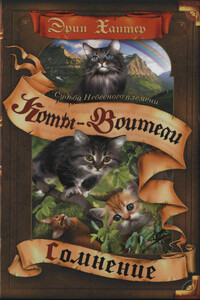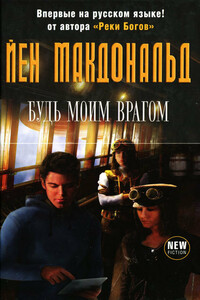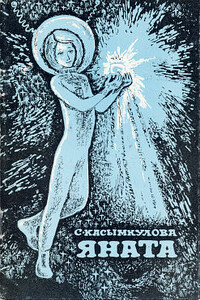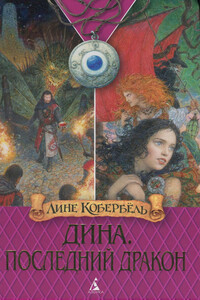The Replacement | страница 10
“You look awful,” he said as I came up next to him. It was a strange thing to say because it was rude and he was a stranger, but also because he wasn’t looking at me.
He had on a long coat with frayed cuffs and military stripes sewed onto the sleeves. There was a row of holes down the front, like someone had cut the snaps out.
“Your eyes,” he said suddenly, turning to stare at me. “Your eyes are black as stones.”
I glanced back over my shoulder to make sure there was no one else on the path before I nodded. My eyes were always dark, but iron made it worse. The dizziness was nearly gone, although I still felt sweaty and pale.
The man leaned closer. The skin around his eyes was bruised, oily looking. His complexion was an unhealthy shade of yellow. “I could help you.”
“I’m not an expert or anything, but you look like you need a little more help than I do.”
That made him smile, which didn’t improve his appearance. “My face is simply a result of my poor breeding, but you, my friend, are in bad shape. You need something to get you back on your feet.” He pointed across the bridge to the other side of the ravine, my quiet suburban neighborhood and my house. “That way lies misery. It’s what you’re going home to, and I think you know it.”
Rain pattered on the bridge. I glanced over the rail and down at the slag heap. It was so black that you could almost see other colors. My heart was beating harder than was comfortable.
“I’m not interested,” I said. My mouth was dry.
He nodded gravely. “But you will be.”
It didn’t sound like a threat or a warning. His voice was flat. He took a watch out of his coat pocket and turned away from me, flipping the lid open but staring down at the slag heap.
After a minute, I edged past him, careful not to let our shoulders touch. I crossed to where the path climbed the other side of the ravine and came out at the intersection of Orchard and Concord. I kept going, trying hard to fight the panic in my chest. A small, fearful part of me was convinced he was following, he was coming up behind me, but when I turned back toward the bridge, there was nothing.
On Concord Street, all the houses were two stories high, with big wraparound front porches. Three houses down from ours, Mrs. Feely was out in her yard, nailing a horseshoe to the porch railing. Her hair was gray, arranged in tight poodle curls all over her head, and she was wearing a yellow rain slicker. She glanced over her shoulder and when she saw me, she smiled and gave me a wink.



